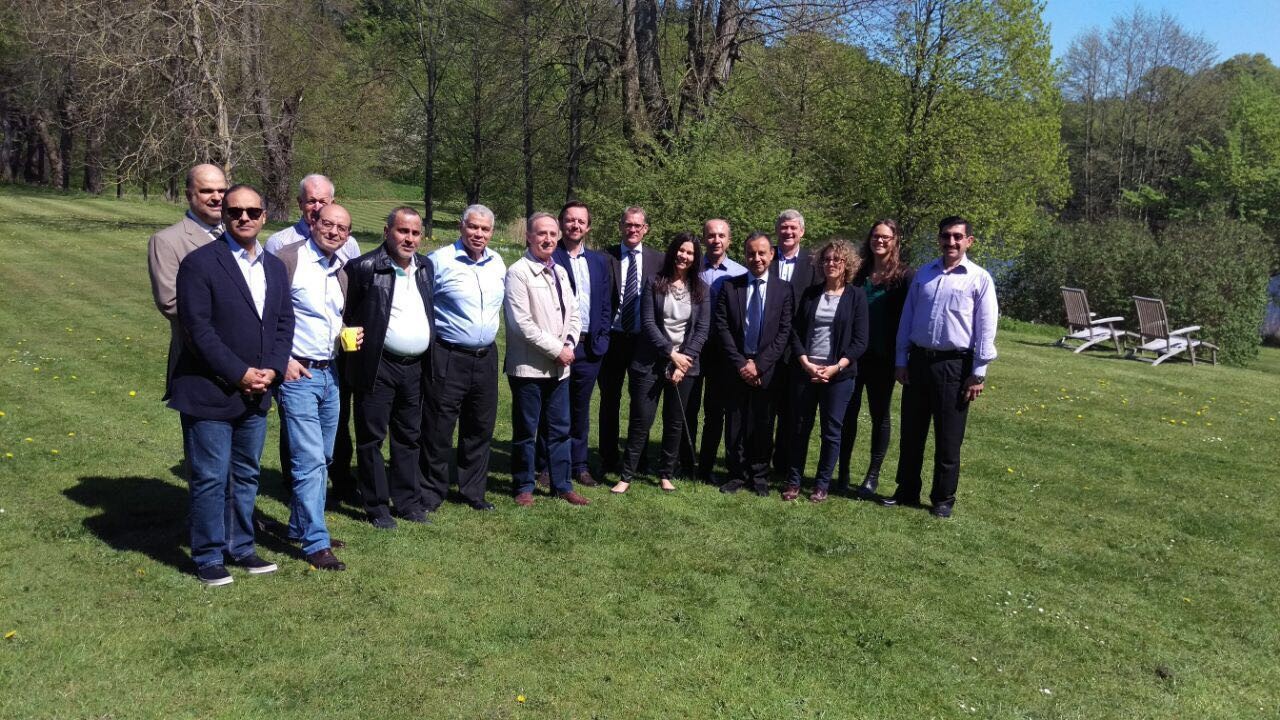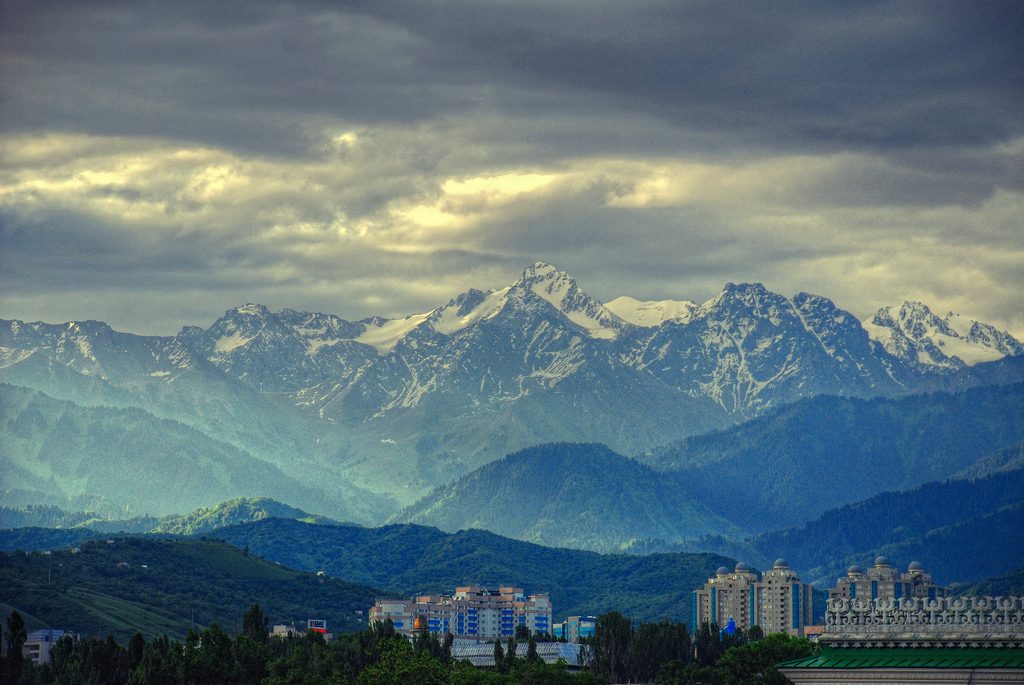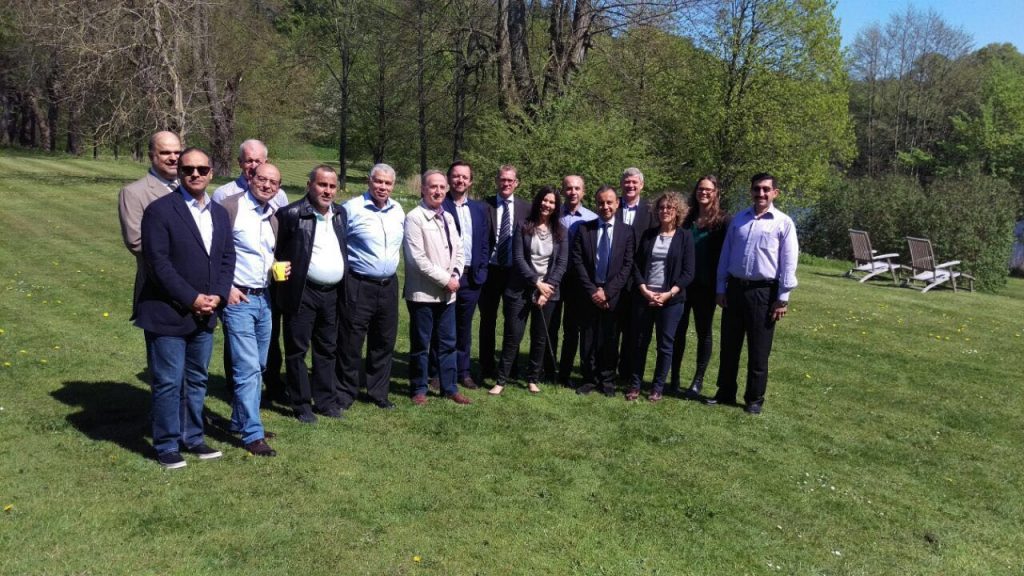Kazakhstan is a vast country (the ninth largest in the world) that is strategically located in Central Asia. It borders include Russia and China. Along its Western border, where the Caspian Sea meets the dessert, is the small port city of Aktau. This city is the capital of the oil rich region of Mangystau. Like many oil rich countries, the decline in the price of this commodity has resulted in revenue short falls that have impacted economic development and, consequently, employment.
Read More >>
Nordic management – the Arabic way

The Executive Training Program in Denmark engaged Arabic Leaders with the ’Danish model’ where keywords such as trust, motivation, empowerment, and individual freedom were on the agenda.
By Mette Grangaard Lund
The quiet, countryside castle Skjoldenæsholm from the 14th century located between light green trees and the rolling hills of yellow cornfields is a stark contrast to the busy and bustling metropoles of Cairo, Beirut or Riyadh. Nonetheless, this was the destination for reflection and learning where executives from business organizations from nine different countries in the Middle East and North Africa (MENA) region participated in the Executive Training Program from 9th-13th of May 2016.
Read More >>
Structured dialogue, value chain and competitiveness: A journey through implementation, from Copenhagen to Kabul
Originally posted at the World Bank Private Sector Development Blog.
By Steve Utterwulghe
This latest blog post should start with a mea culpa. Indeed, my 2015 work plan for public-private dialogue (PPD) did start in Dushanbe, Tajikistan, not Copenhagen. However, who can swear that he never tweaked a title a tiny bit to make it catchier?
While Dushanbe hosted the very productive First Regional PPD Forum in the “stans,” the 8th Global PPD Workshoptook place in March in the Danish capital.
Read More >>
Public Procurement: The Nexus of Public and Corporate Governance in Combating Corruption
Originally posted at CIPE Development Blog

Governments around the world spend trillions on public procurement each year for everything from office supplies to military equipment to infrastructure megaprojects like this $5 billion Panama Canal expansion.
By Kirby Bryan
For over a decade, the World Bank Group’s Doing Business index has served as quintessential tool for determining how well a country’s institutional infrastructure is suited to the promotion of a productive business environment.
Read More >>
Trade Capacity Building and Private Sector Engagement
Originally posted at CIPE Development Blog

By Kirby Bryan
For sustainable economic growth, developing countries must have the capacity to functionally interact with the global market. Much of the onus for building that capacity rests on a domestic commitment to reforms compatible with global trade. Many emerging markets have lofty aspirations that are unachievable given the current state of affairs, but are determined to rectify the situation. Access to foreign markets can cement reform efforts aimed at improving the local economy and sustaining economic growth.
Read More >>
Public-Private Dialogue: The Key to Good Governance and Development
Originally posted at CIPE Development Blog
An increasing number of policy and governance challenges around the world demand private sector participation to generate viable solutions. Such challenges include poverty reduction, inclusive growth, government accountability, business integrity, national competitiveness, innovation, and access to opportunity. Although the obstacles to dialogue can be high, the value of dialogue is now widely recognized by governments and business leaders alike. Notably, the 4th High Level Forum on Aid Effectiveness in Busan, Korea, recommended that countries embrace “inclusive dialogue for building a policy environment conducive to sustainable development.”
Read More >>
Building Trust between Private, Public, and Civic Sectors within the Open Government Partnership
Originally posted at CIPE Development Blog

Michael Putra, Shell, discusses open policymaking at the OGP Asia Pacific Regional Conference, May 6. Seated to his left are Y. W. Junardy, President, Indonesia Global Compact Network, and Ahmad Yuniarto, Chairman, Schlumberger Indonesia.
At a tender three years of age, the Open Government Partnership (OGP) is growing toward maturity. It has reached a stage where it can reflect on progress made to date and learn from early attempts to inspire action by government and civil society.
Read More >>
Business Issues at Forefront of Albanian Elections
Originally posted at CIPE Development Blog

On June 23rd, Albanians took to the polls for parliamentary elections with big implications for the future of their country. With European Union candidate status on the line, this particular election was viewed by the international community as a “crucial test” for Albania’s democratic maturity. Albania’s candidacy status has been denied its past three attempts at a bid, partially due to the lack of transparency and fairness in its electoral process.
Read More >>



